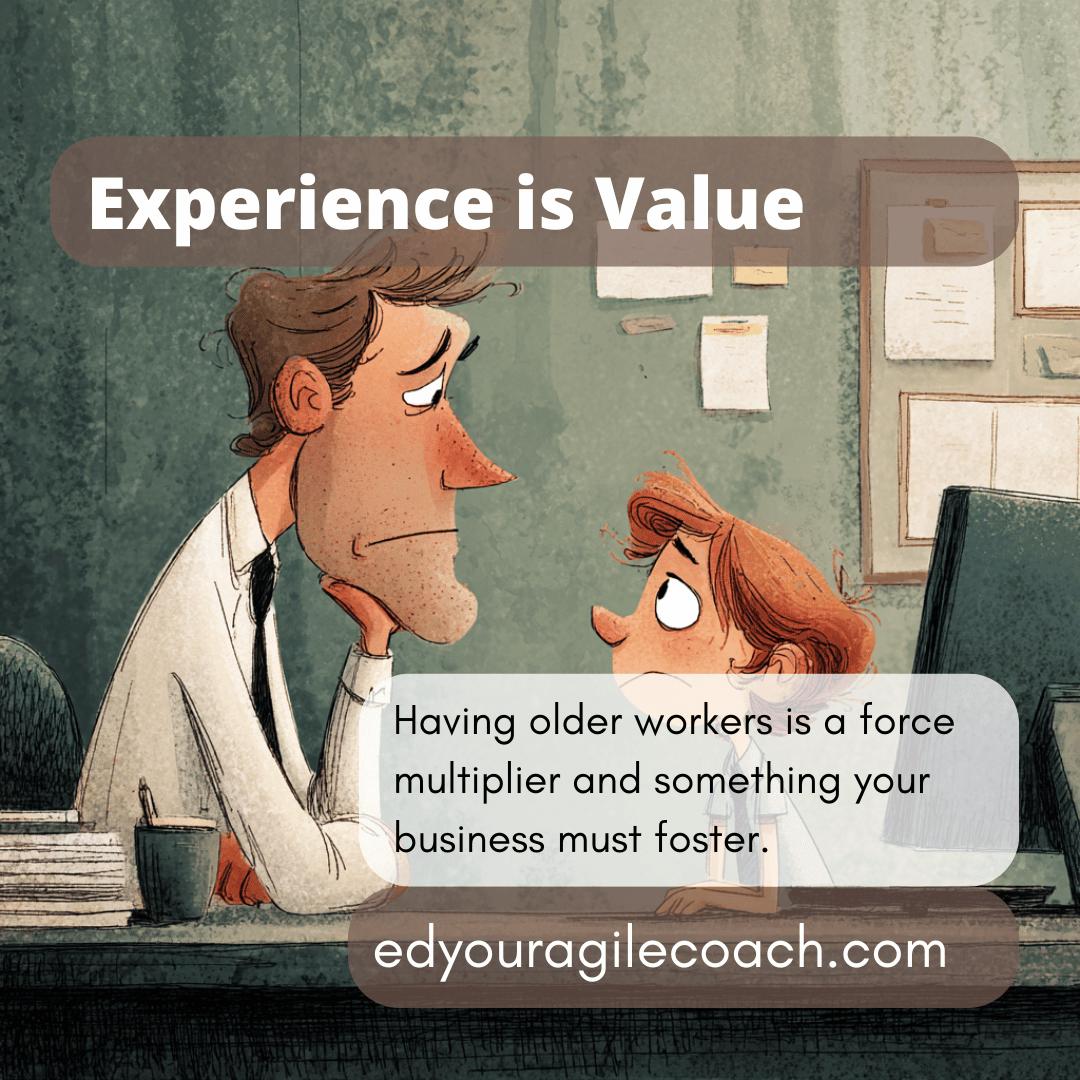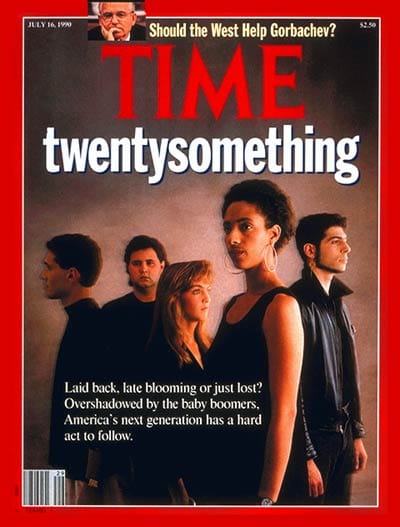Navigating a Career in an Ageist Economy

A common apocryphal phrase repeated by older people is that growing old is a privilege. Compared to a century ago, more people are growing older. The United States Census Bureau says that by 2034, the number of people over 65 will outnumber the number of people under 18. The increasing number of older people in the population has significant implications for business and Agile, and I would like to discuss it.
I am a generational cohort known as Generation X. We are the awkward middle child between the boomers, who were our parents and experienced the 1960s and 1970s as teenagers and young adults, and millennials, raised in the 1990s and early 2000s. Collectively, we have confronted hostility from boomers and indifference from younger people. Still, now we are dealing with the dual challenges of raising children and taking care of our elderly parents. The phrase is the hogie generation. A middle-aged professional is trying to support both their college-aged kids and their retired parents financially.
We are also struggling with ageism in the corporate workspace. Many of us have twenty to thirty years of professional experience in our fields, so we often understand the nuts and bolts of our industries. Boards of directors and shareholders frequently do not see it that way and are passing over Generation X workers for executive roles and selecting leaders from the millennial cohort. It is a broken career ladder where those with the most experience and who have survived things like the Dot.Com crash and the Great Recession are seen as obsolete and out of touch. It feels insulting because there are plenty of examples of business leaders extracting value from their companies and holding on to leadership roles to prevent my cohort from leading organizations.
The significant flattening taking place in technology and other business sectors often treats experience as an expense instead of an asset for the organization. To the Chief Financial Officer, there is always someone younger, less expensive, and more reliable than experienced workers. It is the invisible hand of the market acting on the pool of talent. While it is easy to quantify dollars and cents, it is harder to talk about value delivery. Older workers have experience bridging the gap between those who are terminally online and those who sell to them. We consumed MP3 files and Compact Disks and realized that CDs were a superior technology. We remembered when Microsoft Word only allowed eight characters in file names, so current cloud services do not intimidate us.
At least for me, I want to share my experiences with others because we do not want people to undergo the ordeals we experienced in our careers. We are well-suited to lead change management efforts because we have experienced so many unsuccessful change management efforts. We are accustomed to working with people face-to-face, on the phone, via a Slack channel, and over a video call.
We built the first online communities, creating spaces where people from all over the world could connect and share ideas, which laid the groundwork for today's social media platforms. We were early adopters of MySpace, Facebook, and Tumblr, and are making an impression in the online video space. Since I left the casino industry in 1997, I have participated in the evolution of the business and culture. Being told to sit out the last part of my career because I am not technologically savvy is the product of a bull and a field of grass.
I understood that Artificial Intelligence could become a bubble, and my observations are correct. Now, business leaders are asking if the investment in money, time, and energy is worth it. If you had listened to your older employees, we might have helped you find real use cases for the technology. Instead, many CEOs were chasing a dream without asking hard questions.
Experience is a value add to your organization and will help you navigate market and organizational challenges. These are the kinds of workers you want in your corner when business gets hairy. However, they are not impressed with showy displays of authority and becoming "hardcore." Since they are being passed over for leadership roles, they do not think their traditional office rules are relevant. They will not install the company e-mail on their personal smartphones, and outside of office hours, they jealously guard their personal time. It is hard-won wisdom that comes from realizing careerism is a dead end.

Business leaders and agile coaches must get accustomed to this new dynamic. Experienced professionals are not impressed with the latest business trends and behaviors. They need to see how systems will improve their jobs. Asking people to do something without doing it yourself is a recipe for failure. Finally, thinking you are a leader and everyone else is a follower will elicit a mutiny. It is why MBAs, freshly scrubbed from business school, often invite the most eye rolls from staff because they know how to network and be business students, but they do not understand how to lead others or run a business.
Many business leaders think that sameness is the key to efficiency. If everyone looks, acts, and talks the same, human diversity will go away, and business will be easier. Study after study has shown that theory to be false. The friction of different people working together creates innovation and the resilience businesses need to succeed. Ignoring older workers is a symptom of a larger problem, and that is the desire for corporate leadership to see the people who create value for them as easily replaceable machines instead of human beings who grow old.
Being a member of Generation X, I could mutter the phrase "whatever" and get on with my life, but I still have value to provide businesses, and I want the next generation to suffer less than I did in my cubicle. I have wisdom and experience to share if you will let me.
Until next time.




Comments ()